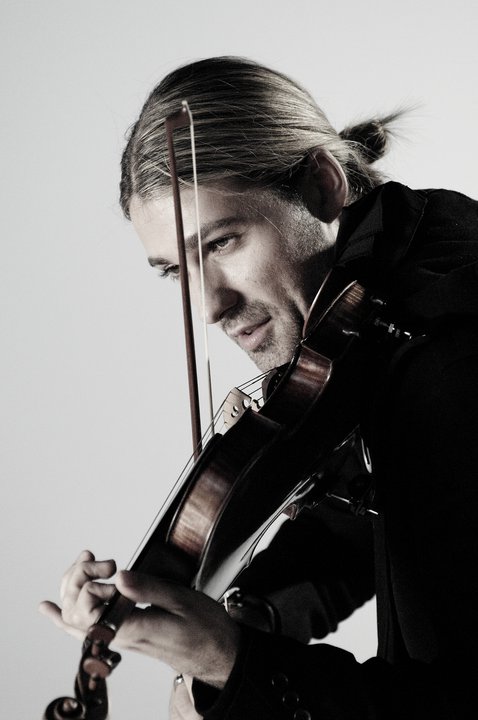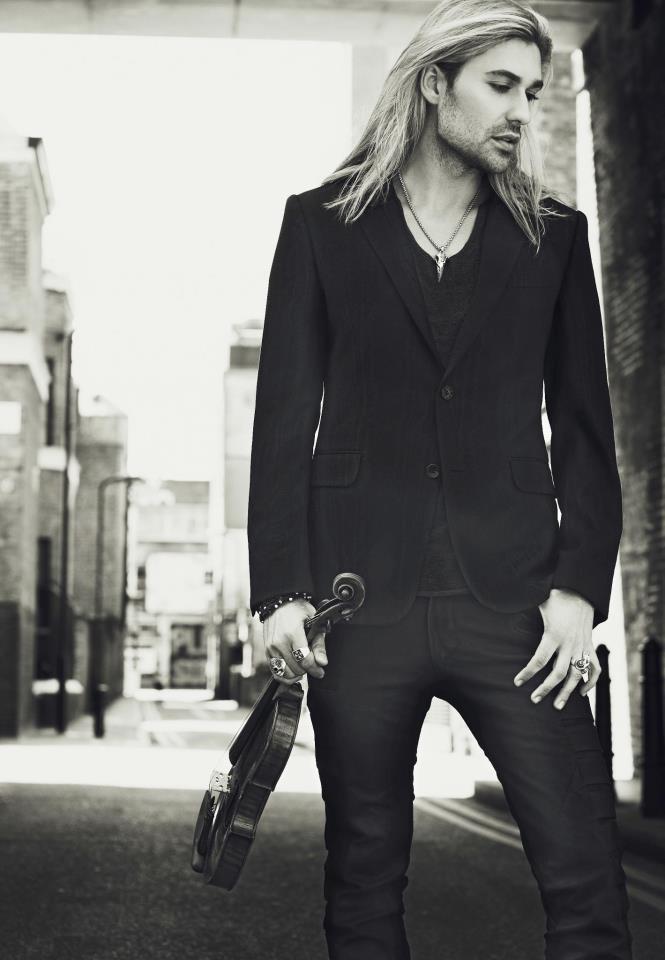LPR Member pre-sale on June 13th at 10AM
On-sale to the public June 14th at 10AM
**************************
TABLE SEATING POLICY
Table seating for all seated shows is reserved exclusively for ticket holders who purchase “Table Seating” tickets. By purchasing a “Table Seating” ticket you agree to also purchase a minimum of two food and/or beverage items per person. Table seating is first come, first seated. Please arrive early for the best choice of available seats. Seating begins when doors open. Tables are communal so you may be seated with other patrons. We do not take table reservations.
A standing room area is available by the bar for all guests who purchase “Standing Room” tickets. Food and beverage can be purchased at the bar but there is no minimum purchase required in this area.
All tickets sales are final. No refund or credits.
David Garrett, violin

When David Garrett wanted a title for his new album, he came straight to the point and called it Music. A former child prodigy of the classical world who signed to Deutsche Grammophon when he was only 13, he now provokes Garrett-mania among hordes of international fans with his spectacular fusions of rock and pop with symphonic or baroque traditions. To him, it’s all music and all equally valid.
“I never stopped playing classical music,” he points out. “But when you become really accomplished on the violin, you can literally do anything. It’s just a matter of what you really want to do with music.”
In his teen-wonder years, it looked as if he was all set for a long career as a classical soloist. He worked with leading orchestras around the world under such esteemed maestros as Claudio Abbado and Zubin Mehta, and mastered the major works from the violin repertoire. But he knew that there was a different life beyond the hothouse bubble of classical music, and he took the gamble to leave Europe and head for the teeming melting pot of New York. He kept up his classical studies at the Juilliard school, but the city offered him all kinds of musical and personal opportunities.
The new, open-to-everything David Garrett was born. You could probably write a book about all the musical dreams and schemes inside his head, and the pieces he has created for Music offer plenty of clues about the scope of his ambitions. The disc pulls together an intoxicating mix of classic rock, classic pop and classic classical, all blended together within the violinist’s ever-expanding universe. “I try to see classical music in a new perspective,” he explains, while “on the other hand I want to integrate elements of classical music into pop, yet leave its original energy intact.”
There’s certainly no lack of energy in his cacophonous reincarnation of Khatchaturian’s Sabre Dance, a rocked-up rampage which owes more to the Sex Pistols than to the Leningrad Philharmonic. In Garrett-world, nothing is sacred. He boldly plugs into the essence of Ludwig van Beethoven’s genius by taking two movements from the composer’s Ninth Symphony and subjecting them to the full Garrett treatment. He delivers the Scherzo as an exhilarating rhythmic gallop, supercharged with crashing percussion, howling guitars and power-fiddle, while the famous Ode to Joy is modified with a whirling Celtic jig on violin as the European Community Choir blasts out the famous tune.
But perhaps even more audacious is Garrett’s wholesale reworking of Chopin’s Nocturne. Picking a composer who is recognised as one of history’s most perfect exemplars of the art of the piano and who never composed a note for the violin might sound, on the face of it, a trifle foolhardy. A violin is never going to resemble a piano, but Garrett solves the problem by using the violin to distill the melancholy, introspective spirit of the piece, while adding a backdrop of electronic percussion and David Foster’s limpid keyboard.
After that, it probably seemed the simplest thing in the world to convert Bach’s C major Double Harpsichord Concerto into yet another distinctive addition to the Garrett repertoire. Garrett focuses on burnishing the melodic line while piano and strings add a wash of simple but effective tonal colours behind him.
Garrett’s art lies in the way he opens a two-way street between classical and popular music. His version of Coldplay’s Viva La Vida makes use of sophisticated electronic multitracking, but also incorporates something of the spirit of Minimalist composers such as Philip Glass or Michael Nyman. When he takes on the crushing weight of Queen’s bombastic anthem We Will Rock You, he makes room for some daredevil classical flourishes in between the enormous rhythmic explosions detonating all around him.
It’s as if he’s daring himself to search for the next challenge. Taking a further leap beyond Vivaldi Vs. Vertigo (where he craftily grafted the Four Seasons onto the piledriving riff from U2’s Vertigo), this time he has found a way to fuse the celebrated James Bond Theme with Led Zeppelin’s classic Whole Lotta Love to create Whole Lotta Bond. But there’s a poppier sensibility at work here too, evident in the delicate pizzicato playing he brings to the Michael Jackson hit Human Nature, or the way he integrates solo violin into the urban, R&B-tinged Cry Me A River.
His work is often described as “crossover”, but whatever it is, he believes that it “poses an even greater challenge than classical music does because you want to present things to your listeners in a completely new light while putting on a superb violinist’s performance.”
Perhaps we should just call it David Garrett music. Or better still, just Music.


